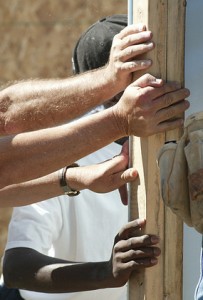Podcast: Play in new window | Download
Subscribe:
Dr. Melinda Moore talks about her current area of research which is military suicide bereavement. She has also worked in the nonmilitary sectors as well.
She references her website www.posttraumaticgrowth.com which was used for her dissertation research. It now is open to the general public for those who are interested in bereavement information.
The potential for growth in an individual who has been berieved by suicide is presented.
This post traumatic growth is a positive psychological construct that occurs with individuals who have experience psychological trauma.
Dr. Moore describes the loss of her husband Connor in 1996 and how reading Dr. Edwin edit Edwin Shneidman’s book, “The Suicidal Mind,” was beneficial in dealing with the unrealistic, tremendous responsibility she felt for issues outside of her control. This can tend to be a gender-based issue since women typically are the caretakers and their family.
Shneidman discusses how women can be held responsible for their husband’s suicide.
Dr. Moore discusses the risk of falling into a shame state which frequently is reinforced by those around the survivor. This can reinforce the internalization of the suicide and withdrawal from society that the survivor is feeling.
Dr. Moore’s advice to a listener who’s experiencing that withdrawal is go to the Internet and find as much information as you can from reputable organizations such as the American Association of Suicidology (www.suicidology.org), books by Jack Jordan and John McIntosh, Frank Campbell’s website (www.LOSSteams.com), and other sources referred to in podcast. Suicide bereavement organizations are also recommended. References can be found at the American Association of Suicidology.
Seeking out local support groups as well as online support groups is highly encouraged.
The stereotypes that men can run into when they are survivors of suicide are discussed. This includes the stereotype of men being expected to hide their feelings in difficult situations and when feeling pain.
Survivors are encouraged to let go of beating themselves up over the belief that there were some signs they had missed regarding the loved one considering suicide.
However, if some loved one does indicator having thoughts of suicide then be supportive in helping them find the proper resources.
The challenges parents face when there are surviving children are also discussed. There is a very complicated balancing act required for the parents not only deals with throne grief but is supportive of the surviving children in dealing with their grief. Seeking immediate help from competent professionals is strongly recommended. It is important to keep in mind that not all psychological professionals are trained in addressing the issues associated with suicide. The Dougy Center for Grieving Children (http://www.dougy.org) is a great resource for grieving children as well as parents.
Dr. Moore talks about the personal satisfaction she is felt by helping others who have gone through the experience of losing a loved one through suicide.
Your feedback is important. Choose from the following options:
- Click on “Send Voicemail” over to the right,
- place a review in iTunes,
- click on “leave a comment” below,
- send any comments along with your name to comments@thriveandconnect.com or
- call us at 614-664-7650.
Listen to future episodes for our reply.
 that can help.
that can help.

 n is emphasized.
n is emphasized.

